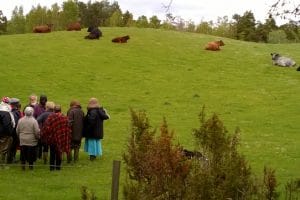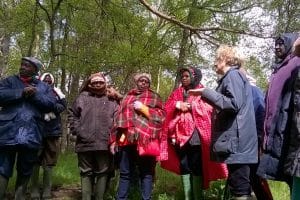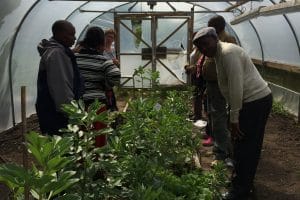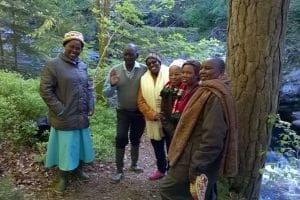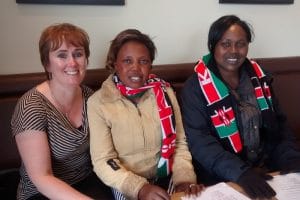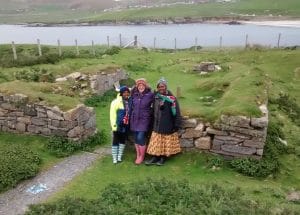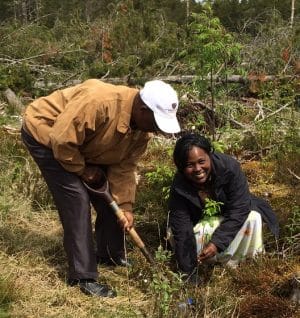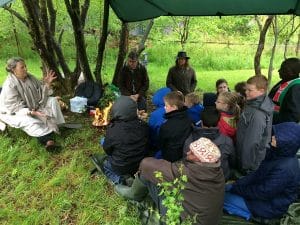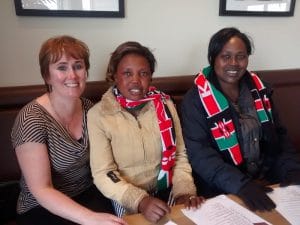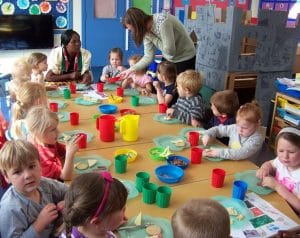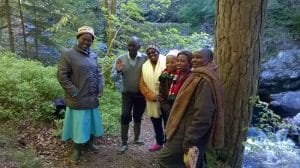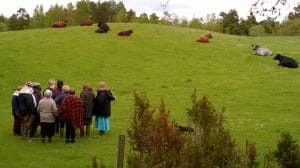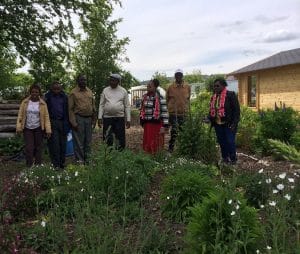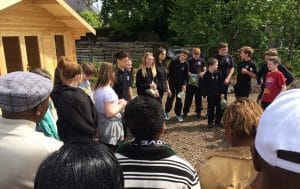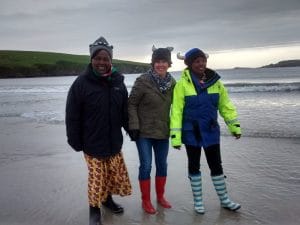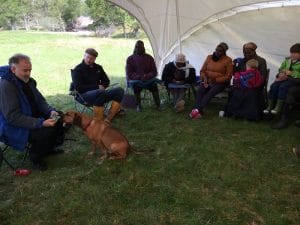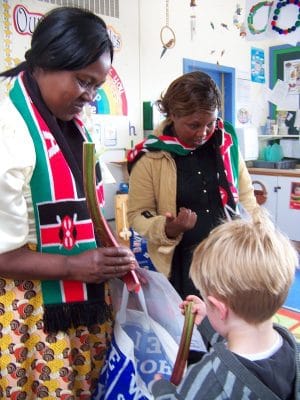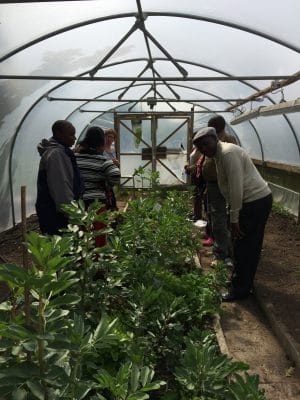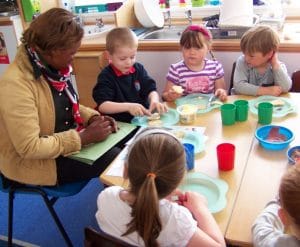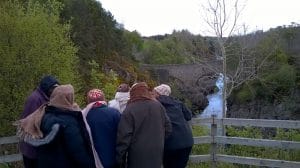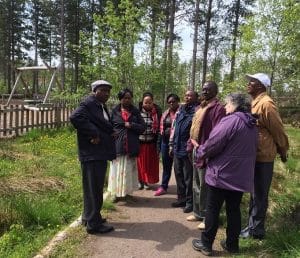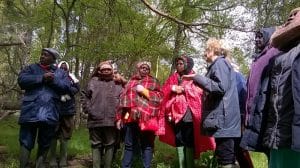Global Citizenship – Connecting Gardens & Classroom
Region:
Kenya & Scotland
2015






The Background
Today there is a world of asymmetric development, unsustainable natural resource use, and continued rural and urban poverty. Generally the adverse consequences of global changes have the most significant effects on the poorest and most vulnerable, who historically have had limited entitlements and opportunities for growth.
Against a backdrop of climate change, global inequalities and mass migration, there is an urgent need to repurpose education throughout the world.
The Partners
Crofting Connections
Crofting Connections works with over 120 schools in the crofting counties of Scotland, many in remote areas, to introduce the study of crofting past, present and future into the curriculum. The aims of the project are to deepen the connections between children and young people in crofting communities through place–based learning and to introduce pathways to meaningful local employment for those wishing to remain in or return after studies to their local communities. The project aims are based on the three pillars of Sustainability – environmental social and economic.
Crofting Connections is working with Scottish schools to develop links with NECOFA schools, to apply for funding and to co-ordinate the NECOFA visit. http://croftingconnections.com
Network for Ecofarming in Africa
Network for Ecofarming in Africa (NECOFA) is a community based NGO promoting Ecofarming:
Ecologically and socially sustainable Land Management. It works towards empowering communities to sustainably access education, health, food security and social dignity.The organization has activities in Nakuru, Baringo and Makueni counties and works with rural community groups and schools. It has very similar aims to those of CCx in relation to preparing young people for work locally. NECOFA Kenya will work with Kenyan schools to develop links with Crofting Connections schools and to prepare for the visit to Scotland. http://necofakenya.wordpress.
The Proposal & Arkleton Trust Involvement
Kenyan Connections
Kenyan Connections links Crofting Connections schools with the NECOFA Kenya School Gardens Initiative. As part of Scotland’s Commonwealth 2014 legacy, a delegation of Kenyan teachers, project officers and community leaders will visit Crofting Connections schools and crofting communities in Orkney, Shetland, Argyll and Highland. They will attend joint Scottish/Kenyan Career Long Professional Learning (CLPL) sessions and a conference in Inverness to design a global/local food education programme relevant to both Kenya and Scotland and to plan a reciprocal visit to Kenya.
Pupils will have the opportunity to meet the Kenyan delegation and to talk directly with them about life for children and young people in Kenya. They will be able to explore ways in which links can be made with Kenyan pupils to learn about global and local food systems.
17 Crofting Connections schools and supporting local authority Education service staff from Highland, Argyll, Orkney and Shetland will be involved: They will promote the project in each local authority; prepare for the Kenyan visit by attending joint project activities; host Kenyan delegates on visits to each local authority; develop the project legacy in partnership with NECOFA schools – producing case studies and resources for use in both Scottish and Kenyan schools.
The aim is to establish connections between Crofting Connections (CCx) schools and NECOFA Kenya schools in order to increase understanding among Scottish and Kenyan pupils, teachers and the wider community of global citizenship, sustainable development, international education and education for citizenship.
Aims
To use this initial visit from NECOFA staff and teachers to establish good links between ambassador teachers from CCx schools and NECOFA schools, to increase the number of schools engaged in the twinning project.
To help pupils in Scotland and in Kenya to increase their understanding of:
o Global citizenship – what does it mean to live in a globalised world?
o The three pillars of sustainability – environmental, social and economic – what does this mean for our children and young people in Scotland and Kenya? Crofting Connections and NECOFA Kenya have very similar aims which address these three aspects of sustainability
o Food security – what is the balance between local and global food markets? What are the links between global trade and food poverty?
o Living in a rural community – the importance of links between schools and their local communities in some of the more remote parts of Kenya and Scotland
o School Meals and Food Education in Kenya and Scotland – what is a healthy diet in Scotland and Kenya?
o School gardens – soils, water, compost, crops, the seasons, using the harvest – what can pupils learn from each other about gardening in very different climatic conditions?
o Cultural aspects – music, dance, visual arts such as painting, drawing and photography and crafts such as textiles and basketry.
o Health and Well-being – importance for self and for others.
Objectives
Ambassador teachers in Scotland and in Kenya have a greater understanding of the value of this partnership and communicate this to other CCx and NECOFA schools
Pupils and teachers in Scotland and in Kenya are more informed about global citizenship and sustainable development, making them better global citizens, with a livelihood that treasures life, human rights, culture, the environment and the local economy
Teachers from Kenya and Scotland share experiences through joint CLPL sessions which will help to change hearts, minds and practice and deepen commitment of schools in both countries
Teachers and pupils understand more about the elements of a healthy, locally produced diet in Scotland and Kenya; school meals in both countries are improved through greater understanding about nutrition; pupils learn about Fair Trade for farmers exporting to the global market
Partnerships established or strengthened with organisations such as Ecoschools in Scotland and Kenya and the Global Learning Programme Scotland
On-going links established between CCx and NECOFA schools through regular email and snail- mail exchanges and a reciprocal visit by Scottish teachers to Kenya in 2015.
Production of web-based and printed resources for use by schools in Kenya and Scotland
